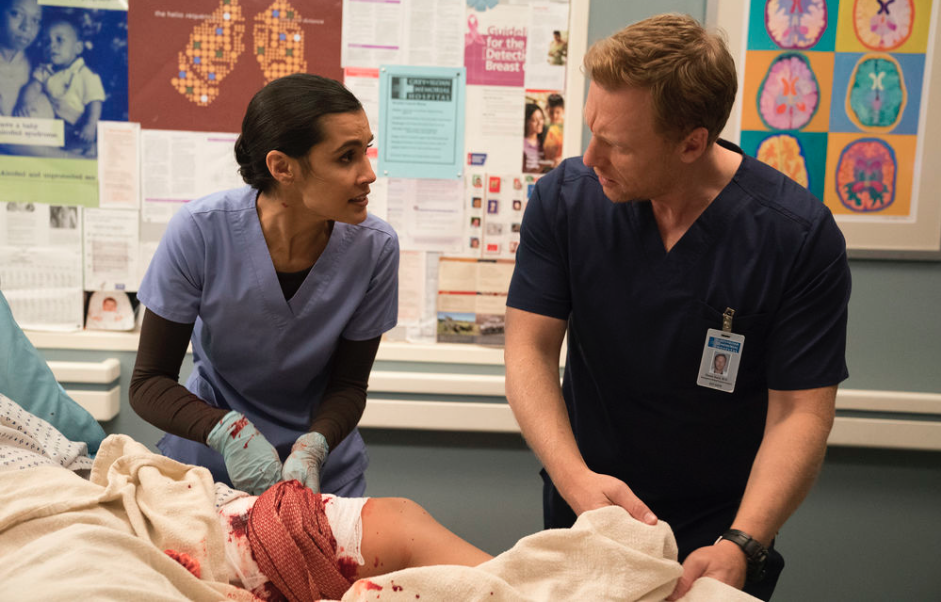One thing that has really stuck out about Grey’s Anatomy and Shonda Rhimes’s plot line for this show is that there is no fear in touching upon social issues or common stereotypes. These stereotypes include mass shootings, lgbqt, death penalty, working with people of different backgrounds, the morality of turning life support off, undocumented immigrants healthcare, interracial families, morality of having babies who you know will have mental or physical disabilities, alcoholism, DACA (Deferred Action for Childhood Arrivals/DREAM , honoring DNR (Do Not Resuscitate) requests if there is hope of recovery, etc. I even watched an interview of Ellen Pompeo (who plays the main character Meredith Grey) on the Ellen show where she starts tearing up in terms of how powerful this show is not only in terms of the free medical education they give but how it brings society together. There is one scene where an intern who wears a religious head scarf, takes of her scarf to patch up a bleeding patient and then she goes on to explain to her curious supervisor how her religion is all in favor of helping people. At that time all the viewers probably empathized and felt connected to her breaking the cultural stereotypes held and showing that all people are similar on the insides. In another scene, Derek has an African American child and gets stares from other parents. The viewers who have seen Derek from the beginning and how they adopted this child who needed someone and, in that moment, looked down upon those staring parents. However, perhaps those viewers were those very same parents who stared on. Greys Anatomy has a way of showing us how the stereotypes we hold seem so funny, unnecessary, and immature. I can say without a doubt that this show has helped me grow as an individual not only in terms of character but also in terms of medically. I make smarter choices for my own health and am more educated talking to others. For example, my friend is getting a pacemaker, and I was able to follow his doctor’s language and diagnosis and able to participate in a two way conversation. And as my last post, I want to say how grateful I was that this project helped me discover Grey’s.

Dr. Dahlia Qadri removing her Hijab(Headwear) to help her patient.



 Dr. Ford’s final salute, as if wishing the humans good luck in the new world he has created.
Dr. Ford’s final salute, as if wishing the humans good luck in the new world he has created.